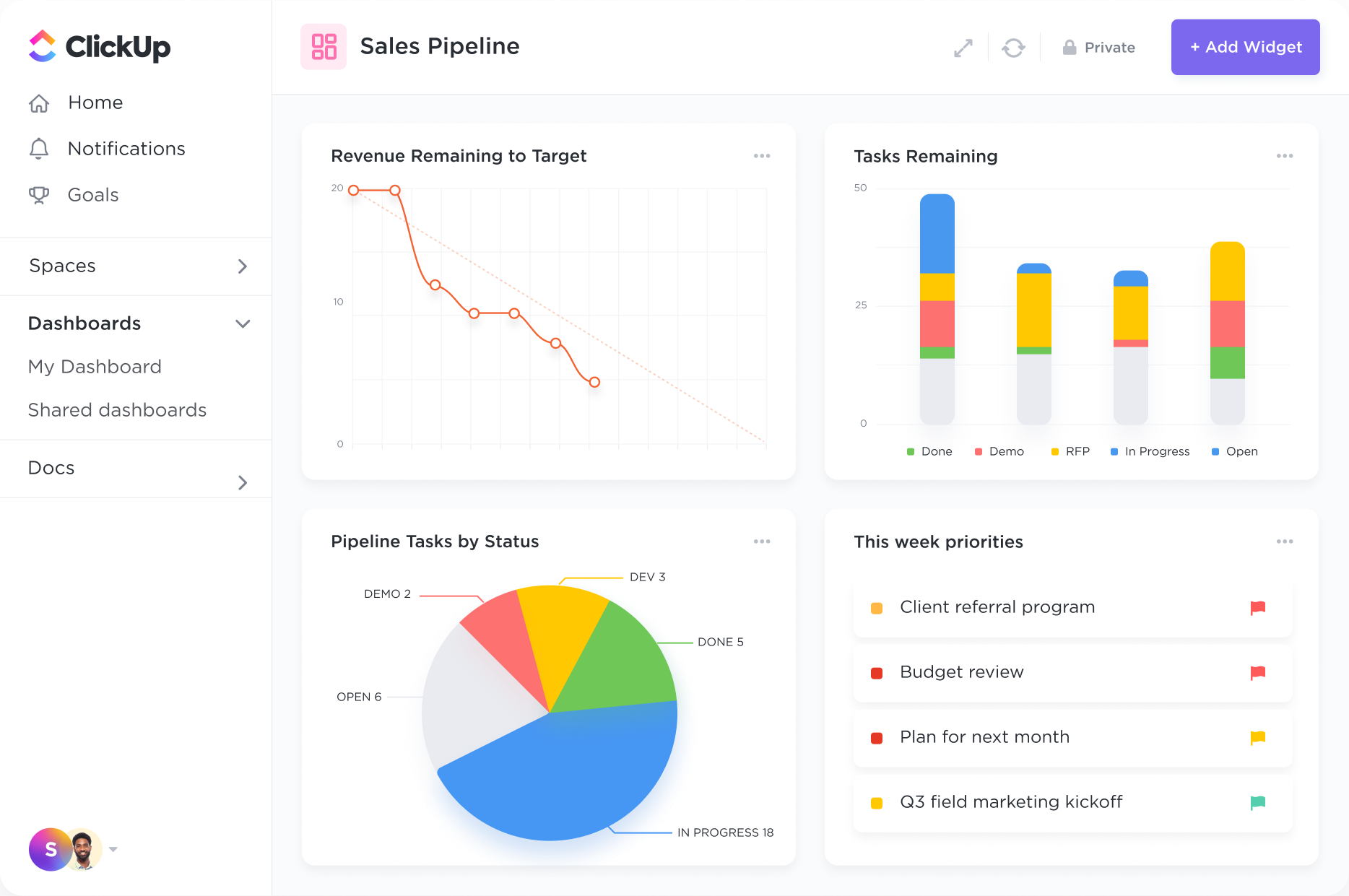Analyze data for customer insights.
Create high-level views to monitor customer lifetime value, average deal sizes, and more. ClickUp's 50+ Dashboard widgets make it easy to visualize all of your customer data in one place.

Streamline your customer interactions with ClickUp's powerful CRM software designed specifically for Marketplace Sellers. Organize leads, track customer interactions, and increase sales efficiency all in one place. Say goodbye to scattered data and missed opportunities - ClickUp has everything you need to strengthen your customer relationships and grow your business.
Free forever.
No credit card.
Trusted by the world’s leading businesses
Create high-level views to monitor customer lifetime value, average deal sizes, and more. ClickUp's 50+ Dashboard widgets make it easy to visualize all of your customer data in one place.

Eliminate silos and fast-track communication by integrating your emails with ClickUp. Collaborate on deals, send project updates to clients, and onboard customers with a single email hub.

CRM software can help you manage customer relationships by centralizing customer data, tracking interactions, and providing insights to enhance communication, improve customer service, and personalize your interactions with customers.
When choosing a CRM software for marketplace sellers, look for features such as order tracking, inventory management, customer communication tools, sales performance analytics, and integration capabilities with popular marketplace platforms like Amazon, eBay, or Shopify.
Yes, CRM software can integrate with popular marketplace platforms like Amazon and eBay to streamline operations by centralizing customer information, order details, and communication history in one place for improved efficiency and customer service.